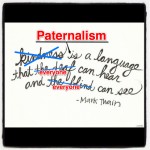 Dying people show up each day in my emergency department. Young and old take their lives, or have life taken from them.
Dying people show up each day in my emergency department. Young and old take their lives, or have life taken from them.
Death is everywhere, if we look.
Recently, death and dying holds media attention: legislation in Quebec, Dr. Low’s passing, and even Sue Rodriguez.
Aside from places like the Netherlands, physicians have almost no experience with euthanasia or assisted suicide.
Doctors know end of life care, not euthanasia; palliative care, not physician assisted suicide.
Dr. Wooder, president of the OMA, was wise to focus on what physicians know best, when he decided to focus on end of life care this year.
Emotional stories and tragic personal experiences fill most discussions about death. We wade over our heads into content and debate unfamiliar beyond anecdotes.
When we don’t know, we tell stories.
We need to start with definitions. As President Clinton said, “It depends on what the meaning of the word ‘is’ is…”
Six terms you need to know:
Euthanasia: few agree on a definition, but most say that “euthanasia involves doctors making decisions which have the effect of shortening a patient’s life and that these decisions are based on the belief that the patient would be better off dead” (Keown, 2005).
Active, physician-assisted suicide (PAS): you end your life. You push the button, take the drug, or start the infusion. Your doctor gets you started with supplies and instructions, but you end it. If PAS doesn’t go far enough, your doctor might have to perform voluntary, active euthanasia.
Voluntary, active euthanasia (VAE): you let your doctor end your life. You give consent; your doctor pushes the button…
Non-voluntary, active euthanasia (NVAE): your doctor ends your life when you are not competent to give consent due to severe disease, dementia, etc.
Involuntary, active euthanasia (IVAE): your doctor ends your life against your wishes.
Passive euthanasia (PE): PE involves withholding or withdrawing of medical treatment by a doctor with intent to kill. Defining what includes “medical treatment” is tough and needs its own blog post. Are tube feeds medical?
Finally, we need to grapple with: Intent – aiming to have something occur, and Foresight – being aware that something might occur.
Most of this post came from two great books:
Euthanasia, Ethics and Public Policy: An Argument Against Legislation by John Keown
Rethinking Life and Death: The Collapse of Our Traditional Ethics by Peter Singer
These books look from opposite ends of life. Keown writes clear, careful prose and offers an in-depth review of the Danish experience of euthanasia. Singers writes engaging, thoughtful philosophy about difficult cases in support of unpopular ideas like involuntary euthanasia. On the back of Singer’s book, the Washington Post blurb says:
Far from pointing a way out of today’s moral dilemmas, Singer’s book is a road map for driving down the darkest of moral blind alleys…Read it to remind yourself of the enormities of which putatively civilized being are capable.
Keown reminds us that, “Hard cases make bad law“. So far, most of the news serves up ‘hard cases’. We need to move past these and start discussing how most people die and what we are doing to improve that process.
What do you think? Can we have an adult discussion about death? Should we let everyone do whatever they want with their lives and how they end?


